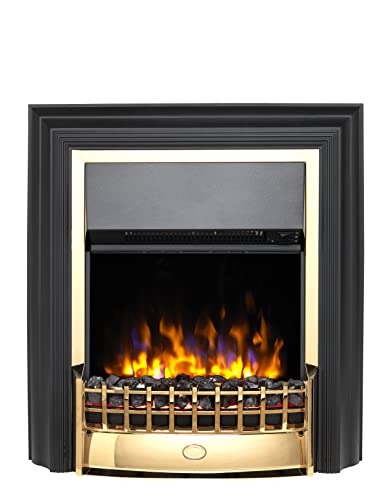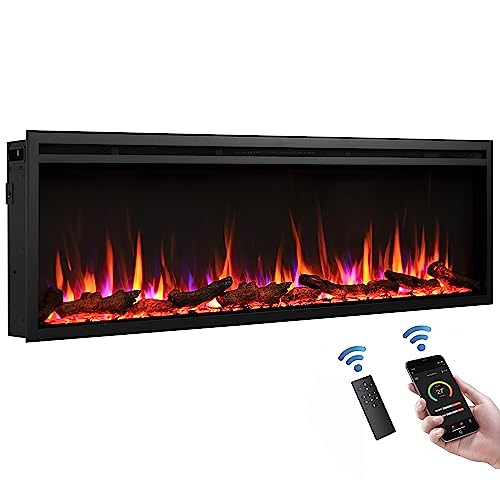10 Websites To Help You Develop Your Knowledge About Fireplace
Page Information

Content
 What Are Fireplace Accessories?
What Are Fireplace Accessories?Fireplaces are central to many homes they provide warmth and comfort throughout the day and night. They also provide beauty and value to the house.
Homeowners can take on many of these projects, whether your fireplace requires facelifts or simple repairs. However, certain jobs requiring gas service should be left to professionals with the proper training.
The Hearth
The hearth is a non-combustible surface that covers a fireplace or wood-burning stove. It can be a raised area or just the foundation of the fireplace. The term "hearth" is often used to refer to the entirety of the freestanding fireplace, including the firebox, the raised mantel and floor, as well as the chimney. However, it is important to remember that there are strict fire safety guidelines regarding how the fireplace and its accessories should be constructed, so contact your local authority for more details.
Hearths are typically made of stone, brick or cement. They can be the focal point of any room. They are designed to form a barrier between the fireplace and the flooring. They also protect against accidental fires that are caused by stray embers or logs. They also offer space for storing fireplace tools, wood and other supplies.
Archaeological research has revealed that hearths were crucial to early human life. Many people believe that hearths were the source of food, light, warmth and security.
A hearth could be a source of serious health issues if it's not properly maintained. Smoke inhalation raises nitrogen levels in the blood which blocks red blood cells from delivering oxygen to the tissues (methemoglobinemia). It can cause nausea, dizziness and loss of consciousness when in high concentrations.
Traditionally, hearths were constructed out of rock, however they are now made out of brick or concrete and come in a variety of shapes and sizes. Some cooking fireplaces wooden have hearths that extend over the whole wall while others are smaller, purely decorative features that cover the area of the fireplace opening. The material used to make the hearth has a significant impact on its appearance, cost, and resistance to heat.
The Surround
A fireplace surround, also referred to as a "mantel" is the frame over the hearth that enhances the ambience of the room. Besides its aesthetic value, it is also a functional element since it shields flammable materials from the fireplace electric and reflects heat into the space. It can also serve as a shelf to display household items like mirrors or paintings.
There are a variety of options based on the size and type of the fireplace. Certain surrounds are not combustible, while others must comply with local and federal fire codes in relation to clearance distances from items that are combustible.
Some of the most popular choices for surrounds include concrete, brick, and stone. Some stone surrounds have decorative features such as bevels and bolection moulding. They may also have cornices or plinths. These details can give a home an elegant appearance that is in harmony with its style.
Plaster is a different option. This material can be made from a mix of cement and sand, and decorated to match any architectural design. For instance, a plaster surround can go well with a Mission style home.
The last popular choice for a fireplace surround is tile. It comes in a variety of patterns and colors. It can be used as an accent to the surround or spread across the entire wall to create an impressive focal point. It is also a good option for homes that have modern or contemporary style.
The surround is among the first things that guests see when they enter a living space. It is for this reason that it is important to choose the right piece that will set the tone for your space and increase the value of your home.
The Firebox
The firebox is the part behind a fireplace's opening where a fire can be built and maintained. The firebox is typically covered by a chimney, allowing the smoke to escape. Most of the time, these traditional structures burn wood but some can also burn gas like natural gas or propane.
Whatever fuel you use the firebox is the location where the combustion takes place and needs to be properly maintained for safety and efficiency. The firebox is comprised of a number of important parts. This includes the grate, the fire poker, and the air damper.
It is essential to clean your fireplace regularly. This includes keeping the firebox in good condition and its interior lining. The interior of your fireplace will be soiled by soot and dust due to its continuous exposure to high temperatures. You can make use of a scraper or wirebrush to clean the soot and ash that have been clogged on.
To ensure durability and longevity it's an excellent idea to line the interior of your firebox with steel slag. These types of metals resist corrosion and will not be rusty. They also offer an even heat distribution which will last longer.
You can also add visual appeal to your fireplace by adding decorative fire logs and lava stones. Some people also use decorative modern glass as an alternative. Make sure that whatever you're using in your fireplace is UL approved for safety. This includes not only the white fireplace itself but also the accessories and decorations you're adding to it.
The Burner
Burners are a popular way to add warmth and beauty to any room. They are available in a variety of shapes and sizes that make it easy to locate the ideal one for your home. Some have remotes, so you can control flames from any location in the home. Fire-burners can be used indoors and outdoors, since they are safe.
There are many types of burners. Each has its own pros and cons. Some are more expensive, but they all offer a range of benefits. Some are safer than other ones, and some operate with chimneys or without. Regardless of which type of burner you choose ensure that you follow the instructions in the product's manual. This will ensure the burner is installed correctly and is in compliance with all state and local laws.
Wood burning is a classic method of enjoying your fireplace, but it's not always efficient. The smoke and soot generated from burning wood can be harmful to your family and you. Ethanol burners produce water vapor, and very little CO2, which is more eco-friendly.
Another benefit of having a fireplace is that it can be useful in the event of an outage. During winter, heavy snow and ice may accumulate on trees, which can cause them to fall, and even knock down power lines hanging from the ceiling. Fireplaces can be used to cook and keep warm if the power is cut off in your home. This is a great option for homeowners who are prepared for the unexpected.
The Flu
The flue is an internal tunnel in a chimney, which carries the gases and smoke from your fireplace out of your home. It's also an essential component of a secure and efficient fire. A flue generates a wind that pulls air into the fire. This lets the fuel burn completely and reduces smoke.
The flue's draft prevents the hot gases produced by the fire from flowing into your home. Instead they are taken out to cool. It is this controlled venting that helps prevent carbon monoxide poisoning.
Regularly inspect your chimney for blockages and leaks. The flue pipe (a steel tube or duct that runs through the middle of the chimney) should be cleaned using special cleaning chemicals and equipment. This includes a metal brush, an electric drill fitted with a masonry bit as well as masking tape and an utility knife to remove any soot or creosote that is stuck to the flue's walls. pipe.
Keeping the flue closed when you're not using your fireplace will help prevent conditioned indoor air from escaping. It also helps prevent rain or wind gusts from getting into the chimney and damaging your fireplace wood stove or gas furnace.
 The damper, which is located at the bottom of the flue pipe or flue tiles, and at the top of the fireplace can be opened or closed by a handle or latch. It is designed to keep the flue open when there is a fire burning, but it should be shut when not in use to reduce your energy bills and keep animals and precipitation out of your fireplace.
The damper, which is located at the bottom of the flue pipe or flue tiles, and at the top of the fireplace can be opened or closed by a handle or latch. It is designed to keep the flue open when there is a fire burning, but it should be shut when not in use to reduce your energy bills and keep animals and precipitation out of your fireplace.- PreviousHow To Find The Perfect Hyper Realistic Sexdoll On The Internet 24.10.22
- Next20 Trailblazers Setting The Standard In Mystery Box 24.10.22
Comment list
There are no registered comments.
